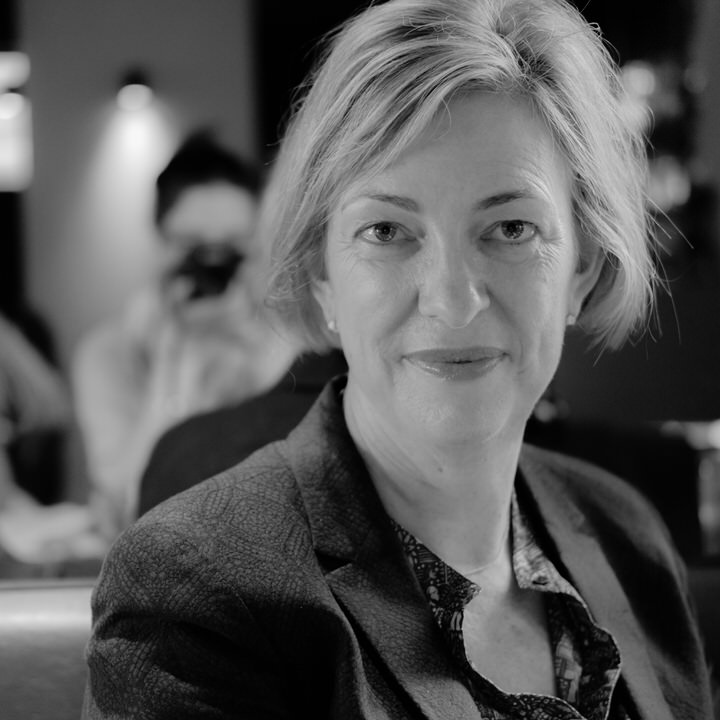
I enjoyed a three-course meal and some stellar plonk recently with a bunch of professionals from life’s comfortable class; people who’ve all tasted the business lounge and five stars and platinum reserve seating.
This was our third shindig together in as many years and because we only meet annually the event feels like a punctuation mark in my life.
At the first dinner, I could tell my fellow suits and frocks I was a student, an unexpected but respectable (and possibly impressive) pastime for a woman in her mid-40s.
The second year I told them I’d graduated to become a trainee, gratefully accepting research jobs and low-paying writing gigs where I could get them. I’d taken my first tentative steps towards a new groove, a new definition, a new answer to the perennially tricky question “so, what do you do?”
This year I told them “I’m a writer”. I said it boldly, with confidence, with the air of a person steeped in the positive affirmations floating around the internet, making their way onto sticky notes around her office. I might be unemployed and not really sure about how to ditch the adjective but I’d fixed on the job title and was determined to make it pay.

Last year, my trainee year, I was thrilled to be working on the fringes of journalism, getting a taste for print publications and learning more about the industry. I worked with an established freelancer, learning the art of the interview, the slog of research and the pain of unsuccessful pitches. I did socials photography and wrote stories, mostly profiles, for a local print magazine. It didn’t pay much but a by-line and exposure were more than I’d hoped for the year before.
That was then
In the beginning, I could hardly believe real journalists wanted to work with me. It was thrilling and exciting and made the expensive study year feel worthwhile. Despite a string of mistakes, some clunky prose and an arthritic writing pace, I improved.
By the end of the year I could produce reliable, accurate, vaguely entertaining copy. I found I was good at talking to people, drawing them out and telling their story in a sympathetic way. I channelled Andrew Denton and Trent Dalton, producing works nowhere near as good but hopefully on the right track.
I also taught myself how to take a pretty decent photograph, spending hours reading online tutorials, lugging my camera everywhere and learning post-production techniques to add art to my stories. I learnt the rule of thirds. I conquered manual. Most of my shots were in focus and occasionally I produced an absolute cracker. In short, I started to dish up a product editors could use to fill column inches.
Gradually, as my confidence grew and demand for my services increased, my wide-eyed enthusiasm for the trainee life faded.
This is now
At this year’s dinner, after declaring myself a writer, I talked about my struggles to make money. The local magazine paid but only at trainee rates. I applied for a job with an online magazine. The editors said they loved my published work but weren’t sure how I’d handle the pace, so they offered me an unpaid internship instead of a job. I nearly said yes.
Where once I was grateful just to be published, I’d reached a point where I expected to be paid, maybe not as much as Trent Dalton or the bikini girls on Instagram, but possibly in the same ballpark as the average burger-flipping teenager.
I shared these thoughts at dinner that night and the response from the comfortable crew at the round table astounded me.

“But artists have never earned much money,” they said.
“Art’s value can’t be measured in dollars,” they said. “You shouldn’t focus on the money.
“Why don’t you write a book?” they said (as if that’s somehow easier than earning a crust as a freelancer for hire).
They crushed me with their well-meaning but ultimately patronising advice to lower my expectations. Already battling doubts about where my writing might fit in today’s media maelstrom, the suggestion I should be satisfied with little or no income left me speechless.
Just for the record, I don’t consider myself an artist. There may be some creativity involved in stringing together a bunch of words but generally it’s a skill like any other. I have a basic talent and then have studied and practised the craft to improve.
I don’t write because “I have to,” waking up every morning yearning to express myself in words, jotting down thoughts and observations in a daily diary. I wasn’t born a writer. It’s not some passion I have to pursue. It’s just the one thing I do a little bit better than most people. It’s just something I hoped the economy might value, a skill I might leverage for financial gain.
I’m not an artist. I’m just a gun for hire. If my words don’t reach a publishable standard then I’ll accept that. If they’re not good enough to attract and engage readers (and therefore sell advertising) then I’ll accept that too. But I won’t accept that it’s ok for people to enjoy the benefits of my labour for free; that what I do fulfils some higher, artistic purpose which can’t be measured in coin.
It’s not just me
Established writers are waging war against indifference. Flying the flag for diversity as much as their own well being, they argue if writing is devalued as a profession, viewed as having some artistic merit but no commercial value, then it will become a hobby for the independently wealthy or simply a sideline for the otherwise gainfully employed.
In an industry struggling with seismic shifts across publication platforms, where advertising dollars are spread thinly and legacy media continues to shed editorial staff, writers desperate for work become easy targets. This is particularly so for newbies like me.
And it’s not just the written word authors are expected to produce for free. Earlier this year a group of respected authors boycotted a literary festival, refusing to appear at a commercial event where they would not be paid. The festival’s patron, coincidentally also president of the Society of Authors, resigned from the event, comparing the unpaid draw cards, the writers, with the venue operators, the administrators, the printers and caterers – all of whom would walk away with a wage or paid invoice.
Message to my comfortable peers
It’s clearly time for a new set of affirmation sticky notes to decorate my office; some pithy quotes about valuing my time and efforts. Because contrary to what my dining companions suggested over their chicken and chardonnay that night, writing for free is not OK. If there’s no market for my work, fine. But don’t tell me to lower my expectations and don’t expect me to do it for nix.


